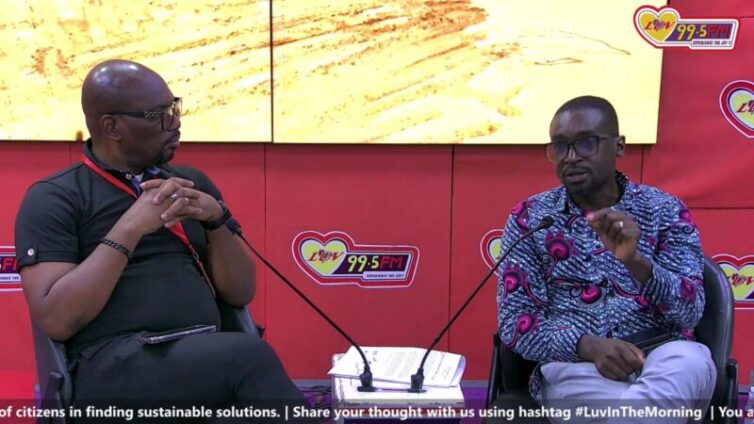A pediatrician with the Komfo Anokye Teaching Hospital, Dr Lawrence Osei Tutu has observed the troubling psychosocial impacts of the illegal mining menace on mothers, children and entire families in mining areas.
According to him, many 'galamseyers' (illegal miners) abandon their homes and families, leaving children without proper guidance who are also vulnerable to rogue social behavioural upbringing, contributing to long-term social and health consequences.
Speaking on Luv FM, Dr. Osei Tutu noted that fathers often abandon their responsibilities, prioritising mining over their children’s health, leaving mothers to fend for themselves when medical emergencies arise.
“When doctors require financial support for treatment, these fathers are nowhere to be found, abandoning their pregnant partners or newborns in critical moments of need,” he said.
With the absence of a robust welfare system, he asserts that the cycle of neglect in mining communities lacks attention feeding into broader societal consequences.
“The psychosocial aspect of leaving the teenage boy alone at home people don’t listen to the holistic aspect of the activities that drives fathers to leave home. These children are left at the peril of bad societal influence. We need a robust system. We seem to firefight in everything we do in Ghana,” he said.
Reacting to these worrying concerns, Dr. Lawrence noted the levels of air pollution have led to a stark reality where young people must now buy oxygen concentrators to sustain their breathing.
“We have all these young men that their lungs have become like charcoal, solid that they can’t breathe anymore without oxygen. So, if they had money to buy what we call concentrators, live at home with them to harvest pure oxygen so that it can sustain them but eventually after two-three months, they’re dead,” he added.
Meanwhile, Dr. Albert Kobina Mensah, a Research Scientist with the Soil Research Institute says despite the heavy damages caused to lands by galamsey operations, re-vegetation will be effective in reclaiming degraded lands as it will neutralize poisoned lands.
“There are some crops that can absorb the heavy elements and stabilize it. An example is maize, it can suck up the nutrients but won’t be transferred to the edible part of the plant. This would help in remediation,” he said.
Latest Stories
-
Asante Gold Bibiani donates 250 desks to Queens Girls’ SHS
13 minutes -
AUCB and Huston-Tillotson University sign MoU to promote academic and cultural exchange
30 minutes -
GH₵1 Levy: Abena Osei-Asare insists the Minority aren’t against fixing of the energy sector
34 minutes -
Court remands NPP sympathiser accused of assaulting JoyNews reporter
41 minutes -
Abena Osei-Asare defends BoG’s performance amid economic challenges
41 minutes -
Groupe Nduom marks World Environment Day with environmental advocacy initiative and donation at Presec staff cluster of schools
1 hour -
Tariq Lamptey signs one-year contract extension at Brighton
1 hour -
NPP’s 2024 defeat painful but part of global trend – Abena Osei-Asare
1 hour -
If you want to win the League, sign me’ – Vincent Atinga celebrates second GPL title
1 hour -
CDS receives delegation from Glock International at Burma Camp
1 hour -
Lordina Mahama urges chronic patients to embrace ‘MahamaCares’ initiative
1 hour -
Fulfil energy sector efficiency promises – Abena Osei-Asare tells NDC gov’t
1 hour -
We have ‘a lot of talent’ in Black Stars – Jordan Ayew
1 hour -
Daily Insight for CEOs: CEO succession planning – Building a legacy beyond leadership
1 hour -
PAC Chair Abena Osei-Asare slams budget cuts to anti-corruption agencies
2 hours

